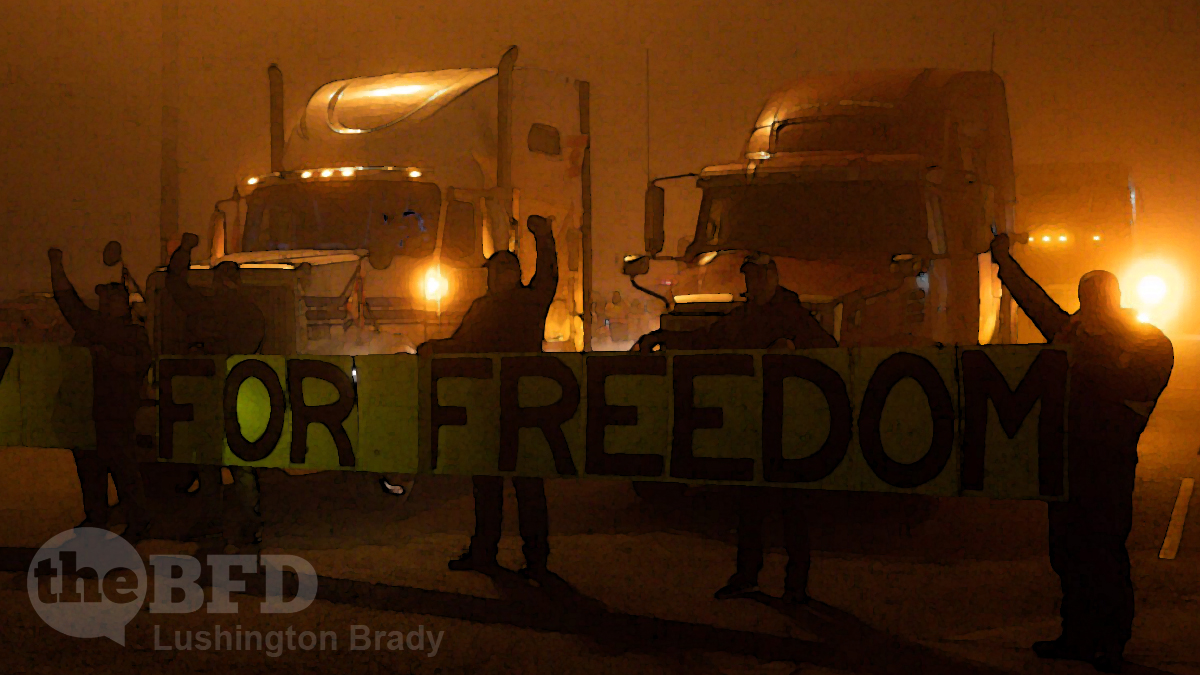David Thunder
mercatornet.com
David Thunder is a researcher and lecturer at the University of Navarra’s Institute for Culture and Society.
In more or less “normal” times, when we are not fighting to put out fires or struggling under the boot of an oppressor, it is remarkably easy to assume that democratic societies are like machines that just need to be well-oiled and maintained over time by civil servants and central banks.
When political life, however nasty, unpleasant, and corrupt, does not intrude too much into our ability to make a living and pursue our dreams, it is easy to think that the future of representative democracy just depends on people going out to vote from time to time, and leaving public affairs in the strong hands of political elites.
In short, when we feel more or less secure in our private pursuits, we tend to take our rights and liberties for granted. Our attention starts to drift away from the public square, and we start to think of democracy as a self-perpetuating system that just requires a bit of goodwill on the part of citizens and a modicum of good behaviour from their political leaders. Democracy starts to feel like a giant, impersonal institutional framework that is broadly self-perpetuating.
What is conspicuously absent from this picture is, of course, the menace of serious systemic corruption and dysfunctional, not to say corrupt, political leadership that divides society and erodes the legitimacy of State institutions. Equally absent is the need for an ever vigilant citizenry, disposed to defend their liberties against would-be tyrants.
David and Goliath
The defence of freedom is not possible without sacrifice. For those who call out corruption and fight for the “man and woman in the street” will often find themselves out-gunned by the powers that be. “Speaking truth to power” often comes at a high personal cost, as peace-loving freedom fighters such as Martin Luther King and Mahatma Ghandi knew through painful personal experience. Taking a principled stand against oppression and injustice puts the speaker in the cross hairs of powerful people, who do not like to be contradicted or challenged in public.
If you live at a time when public authorities show scant regard for citizens’ dignity and rights, such as in 2020-22, then you can no longer afford to be complacent about the value of sacrifice in a democracy. During the pandemic, we saw citizens’ basic rights, from religious worship to informed consent, suspended at the drop of a hat, in the name of protecting public health. This tragic development was nothing but the realisation of a latent tendency within democratic nations toward the seduction of the masses by self-serving, power-hungry elites.
This tendency toward despotism can only be reversed if enough citizens and public officials are willing to take a stand and put their neck on the line, in defence of their liberties and the liberties of all, to send a clear signal that political abuses will not be tolerated.
Courage
It is heartening to see that a significant number of citizens — albeit a minority — have understood the gravity of the threat posed to our freedoms by the extreme and illiberal responses of governments to the pandemic, and have grasped the nettle of sacrifice. Many citizens have put their reputation and livelihood on the line, taking up positions on the front line in a difficult and protracted battle for the restoration of our freedoms.
There is the case of ethics professor Prof. Julie Ponesse, who was pushed out of her job at the University of Western Ontario, after 20 years of service, for refusing to submit to the university’s vaccine mandate (here is her video testimony).
Along similar lines, Dr Aaron Kheriaty was fired from his job after almost 15 years as professor of medicine at University of California, again for refusing to take a Covid vaccine — as he details in his blog.
How many Freedom Convoy truckers held the line in the face of the Canadian government’s threat to freeze their bank accounts?
How many people have been arrested for attending public protests against lockdowns in places like New Zealand and Australia? How many people have lost their Twitter accounts and been portrayed as pariahs among their peers just because they have been critical of Covid-19 measures, or offered evidence-based arguments against them? How many people have had to endure the contempt and sneers of their peers for taking a principled stand in favour of informed consent?
The fruits of these sacrifices may be slow in coming. It takes time for societies to come to their senses and realise they have taken a wrong turn. But the fact that quite a few people took the risk and spoke out against the abuses of the pandemic, often at great personal cost, means that we now have an extensive public record of courageous testimonies against the disgraceful curtailment of freedom that we saw in 2020-22.
Sacrifice is a difficult subject in a society saturated by individualism, a society whose movies, influencers, pop psychologists, and politicians urge citizens to single-mindedly seek out their own personal fulfilment, and devote their energy to vindicating their equal right to everything. Sacrifice is hard to swallow in a society that presents material and professional advancement as the infallible markers of personal achievement.
But when political corruption and injustice is stopped in its tracks, it is almost invariably due to the courageous sacrifices of a few brave citizens, who call out evil and injustice for what it is, and suffer the consequences for their reputations, careers, and livelihood.
Sacrifice is, and always will be, the price of freedom.
This article has been republished from David Thunder’s Substack, The Freedom Blog.

